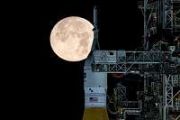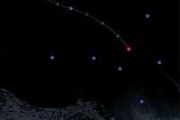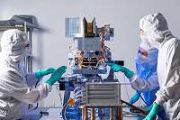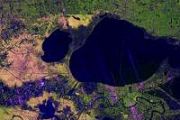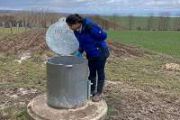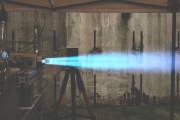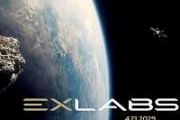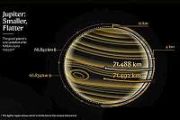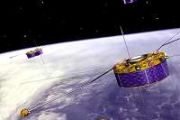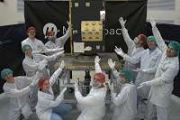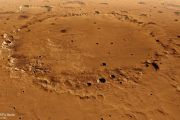
Copernical Team
Comtech wins multi-million dollar follow-on contract for civil space components
 Comtech Telecommunications Corp. has received a follow-on space components award valued at more than 5 million dollars to support a major civil space exploration program in the United States. The award underlines the companys role as a global communications technology supplier to both commercial and government space customers.
Under the contract, Comtech will deliver advanced electronic co
Comtech Telecommunications Corp. has received a follow-on space components award valued at more than 5 million dollars to support a major civil space exploration program in the United States. The award underlines the companys role as a global communications technology supplier to both commercial and government space customers.
Under the contract, Comtech will deliver advanced electronic co Slingshot to embed AI agent in US Space Force space warfare training
 Slingshot Aerospace has secured a 27 million dollar contract to modernize how the US Space Force trains for conflict in orbit by embedding its TALOS AI agent into the service's Operational Test and Training Infrastructure program. The 18 month effort will integrate AI native technology into existing training capabilities so that exercises more accurately reflect the rapidly evolving orbital thre
Slingshot Aerospace has secured a 27 million dollar contract to modernize how the US Space Force trains for conflict in orbit by embedding its TALOS AI agent into the service's Operational Test and Training Infrastructure program. The 18 month effort will integrate AI native technology into existing training capabilities so that exercises more accurately reflect the rapidly evolving orbital thre AST SpaceMobile secures role on MDA SHIELD defense architecture
 AST SpaceMobile has been selected for a prime contract position on the U.S. Missile Defense Agency Scalable Homeland Innovative Enterprise Layered Defense, or SHIELD, program, placing its space-based cellular broadband architecture inside a key U.S. missile defense modernization effort. The indefinite-delivery, indefinite-quantity framework is designed to rapidly deliver new capabilities across
AST SpaceMobile has been selected for a prime contract position on the U.S. Missile Defense Agency Scalable Homeland Innovative Enterprise Layered Defense, or SHIELD, program, placing its space-based cellular broadband architecture inside a key U.S. missile defense modernization effort. The indefinite-delivery, indefinite-quantity framework is designed to rapidly deliver new capabilities across Elon Musk hints at buying Ryanair amid Starlink spat
 US tech boss Elon Musk has polled followers on his social network X about buying Ryanair, stoking a clash with the airline's boss Michael O'Leary over using the Starlink system onboard to use the internet.
By late Tuesday, lowcost carrier Ryanair had not replied to a request from AFP to respond to the poll that was posted Monday, with more than 900,000 participants.
Musk, who founded Tes
US tech boss Elon Musk has polled followers on his social network X about buying Ryanair, stoking a clash with the airline's boss Michael O'Leary over using the Starlink system onboard to use the internet.
By late Tuesday, lowcost carrier Ryanair had not replied to a request from AFP to respond to the poll that was posted Monday, with more than 900,000 participants.
Musk, who founded Tes ESA at the European Space Conference 2026

The 18th European Space Conference (ESC) will take place on 27 and 28 January 2026 at the Square Convention Centre in Brussels, Belgium.
NASA astronaut who was stuck at the space station for months retires within a year of returning
Verifying that you are not a bot
Oldest astronaut Buzz Aldrin turns 96 as new moon astronauts share Apollo inspirations
Verifying that you are not a bot
Hubble uncovers the secret of stars that defy ageing

Some stars appear to defy time itself. Nestled within ancient star clusters, they shine bluer and brighter than their neighbours, looking far younger than their true age. Known as blue straggler stars, these stellar oddities have puzzled astronomers for more than 70 years. Now, new results using the NASA/ESA Hubble Space Telescope are finally revealing how these 'forever young' stars come to be and why they thrive in quieter cosmic neighbourhoods.
Century-old solar records refine future cycle forecasts
 An international team of astronomers has developed a new way to extract solar polar magnetic information from more than a century of historical observations, improving prospects for predicting future solar cycle activity. The work combines data from the Kodaikanal Solar Observatory in India with modern measurements to reconstruct the behavior of the Sun's polar magnetic field over more than 100
An international team of astronomers has developed a new way to extract solar polar magnetic information from more than a century of historical observations, improving prospects for predicting future solar cycle activity. The work combines data from the Kodaikanal Solar Observatory in India with modern measurements to reconstruct the behavior of the Sun's polar magnetic field over more than 100 


